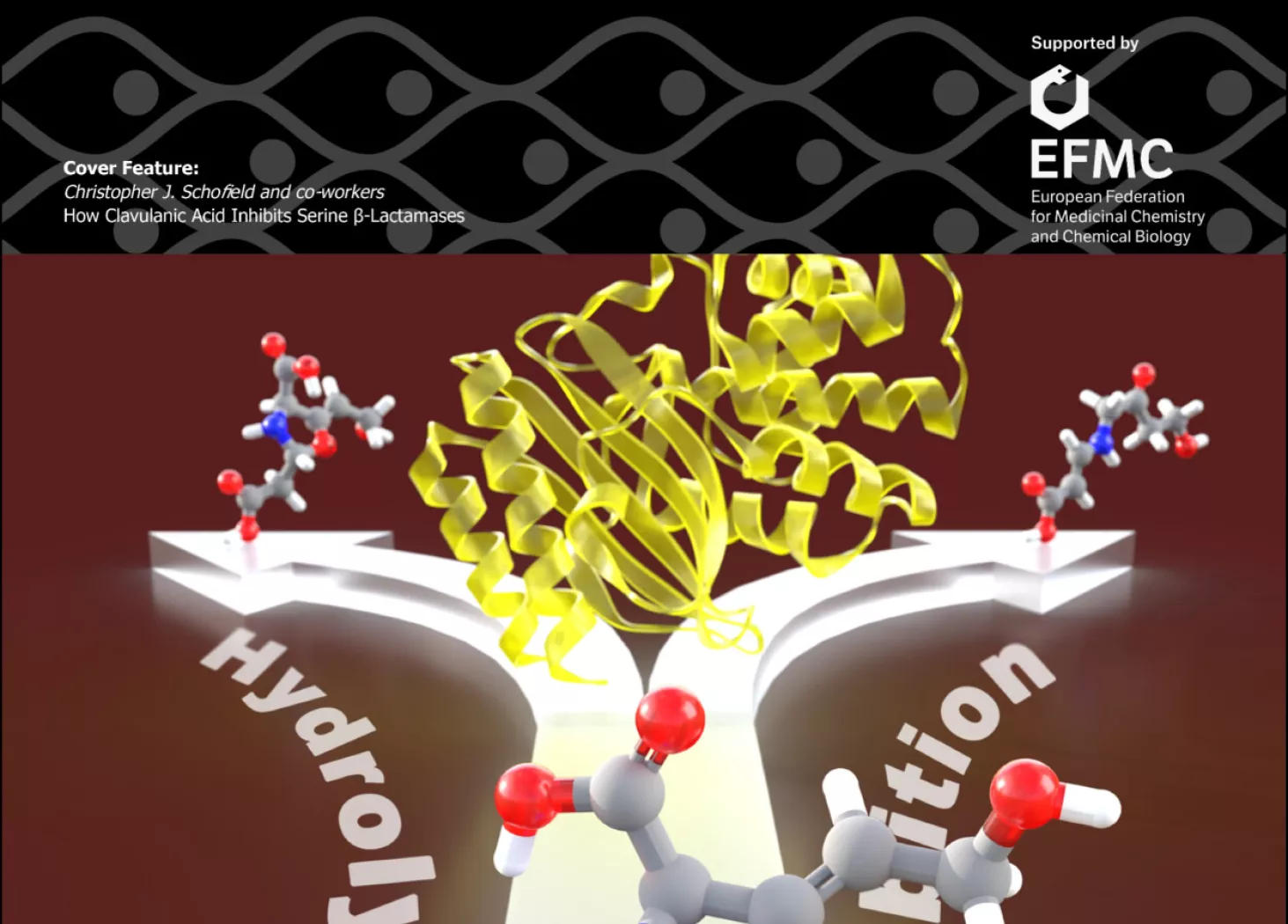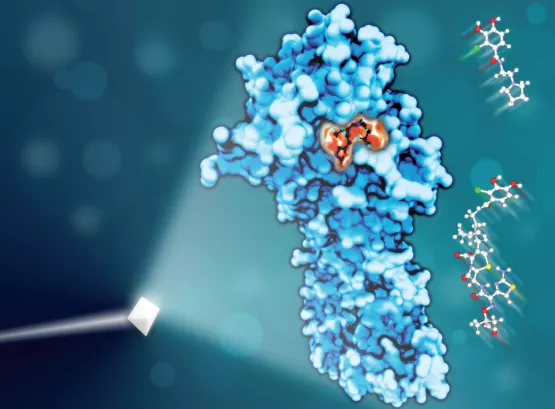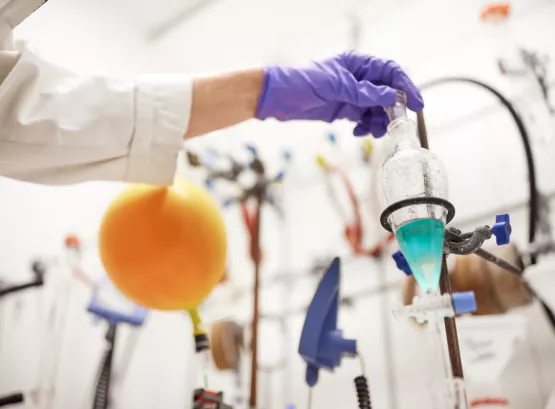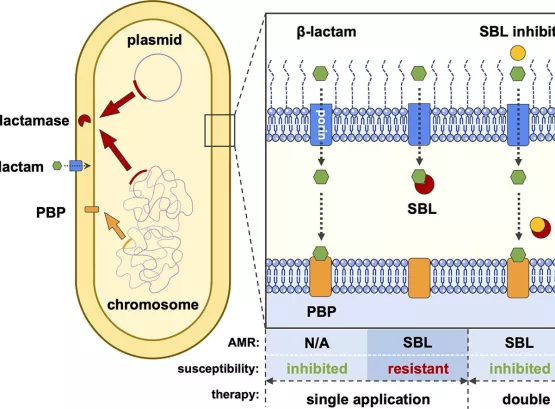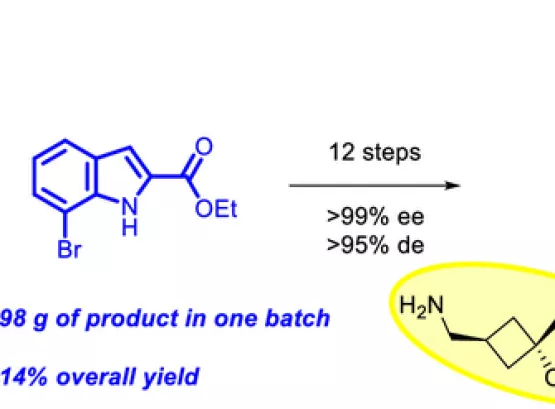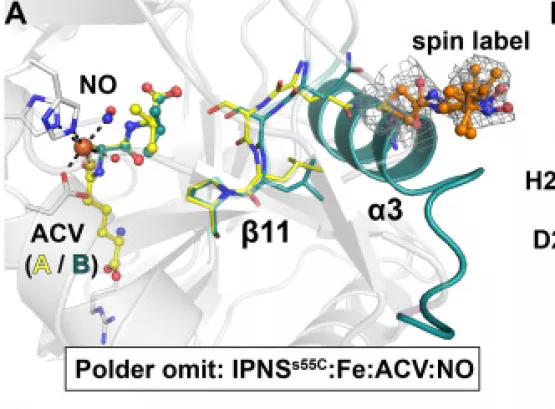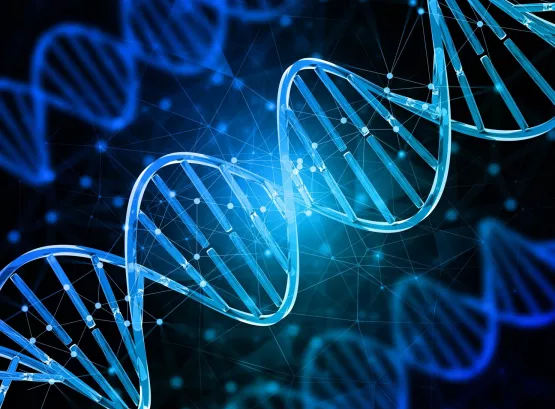Developing new medicines for human use
Developing new human antibiotics
The increasing use of antibiotics globally has exacerbated the evolution of multidrug-resistant bacteria which can no longer be treated by many antibiotics which were previously effective. This causes multi-drug resistant infections in both humans and animals that are no longer easily treatable and can lead to death.
Researchers at the IOI are pioneering new approaches to the design of new antibiotics to be used in human medicine. We are prioritising major global unmet needs that are not being addressed by other research groups or industry. For example, we are targeting the challenge of multi-drug resistant (MDR) Enterobacterales, including those resistant to carbapenem, colistin and tigecycline antibiotics.
Scientists at the IOI are designing new antibiotics and trialling new combinations of antibiotics that avoid bacterial resistance mechanisms for use in human medicine.
We have multiple ongoing research initiatives, including on:
- New β-lactams (antibiotics related to penicillin that inhibit bacterial Penicillin Binding Proteins, or PBPs).
- New non β-lactam inhibitors of PBPs (including boronate-based antibiotics).
- New inhibitors of metallo β-lactamases (MBLs, which are bacterial enzymes that confer resistance against β-lactam antibiotics).
- New ways to combat resistance to tetracyclines and related drugs (a group of broad-spectrum antibiotics unrelated to penicillin).
Research in the 20th Century discovered easy-to-use antibiotics of enormous value, but that doesn’t mean that there are not more to be found. The generous donation from INEOS has allowed us to bring together the best of both talent and infrastructure to find new medicines for human use. And with the commercial expertise that INEOS brings with itself, we hope that they will help us translate our research into practical ways to fight AMR.

Selected publications
Featured on the cover of ChemBioChem: How Clavulanic Acid Inhibits Serine β-Lactamases
Clavulanic acid is a densely functionalized low mass (C8H9NO5) drug, which is used to protect penicillins and other β-lactam antibiotics from hydrolysis by serine β-lactamases. As shown by detailed mass spectrometric analyses, clavulanic acid reacts covalently with serine β-lactamase to form an initial acyl-enzyme complex which, like the analogous complex formed with β-lactam antibiotics, can undergo hydrolysis. In the case of clavulanic acid, however, the acyl-enzyme complex also undergoes competing fragmentation to give inhibitory complexes stable to hydrolysis.
